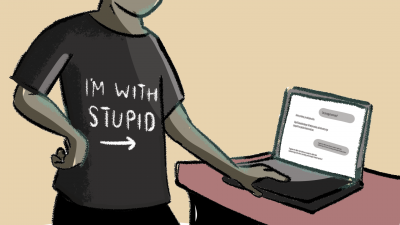Top Stories
New Study Reveals AI Users Overestimate Cognitive Skills

BREAKING: A groundbreaking study from Aalto University has just revealed that users of AI tools like ChatGPT significantly overestimate their cognitive performance. This urgent finding challenges previously accepted theories, indicating a widespread inability among individuals to accurately gauge their abilities when engaging with AI technology.
The research confirms a startling reversal of the Dunning-Kruger Effect, where those who perceive themselves as more knowledgeable about AI actually rate their skills much higher than reality warrants. This phenomenon has been documented across various user demographics, highlighting a critical gap in self-assessment abilities in the presence of artificial intelligence.
According to the study, which was published on October 28, 2025, all participants demonstrated this cognitive bias, leading to serious implications for how we understand human interaction with AI systems. Researchers found that regardless of their actual competence, individuals consistently believed they performed better than they did when interacting with ChatGPT.
This misjudgment of cognitive performance could have significant consequences, especially as AI tools become increasingly integrated into daily life and professional environments. With AI usage surging, the potential risks of inflated self-assessment demand immediate attention from educators, employers, and policymakers.
“Our findings suggest a critical need for better education on the limitations and capabilities of AI,” stated the lead researcher. This call to action is vital for ensuring that users develop a realistic understanding of their interactions with AI, fostering a more informed and cautious approach to technology.
As AI continues to evolve, the need for clear communication about its functionalities and limitations is paramount. Experts warn that without addressing this cognitive bias, individuals may rely too heavily on AI tools, leading to potential missteps in both personal and professional realms.
The implications of this study resonate deeply in our technology-driven world. Users must cultivate a realistic perspective on their capabilities to effectively harness the power of AI without overestimating their skills.
Stay tuned for more updates as researchers continue to explore the profound effects of AI on human cognition. This is an urgent reminder for all technology users to reassess their understanding of AI and its impact on decision-making processes.
-

 Business2 weeks ago
Business2 weeks agoIconic Sand Dollar Social Club Listed for $3 Million in Folly Beach
-

 Politics2 weeks ago
Politics2 weeks agoAfghan Refugee Detained by ICE After Asylum Hearing in New York
-

 Health2 weeks ago
Health2 weeks agoPeptilogics Secures $78 Million to Combat Prosthetic Joint Infections
-

 Science2 weeks ago
Science2 weeks agoResearchers Achieve Fastest Genome Sequencing in Under Four Hours
-

 Lifestyle2 weeks ago
Lifestyle2 weeks agoJump for Good: San Clemente Pier Fundraiser Allows Legal Leaps
-

 Health2 weeks ago
Health2 weeks agoResearcher Uncovers Zika Virus Pathway to Placenta Using Nanotubes
-

 World2 weeks ago
World2 weeks agoUS Passport Ranks Drop Out of Top 10 for First Time Ever
-

 Business2 weeks ago
Business2 weeks agoSan Jose High-Rise Faces Foreclosure Over $182.5 Million Loan
-

 Science2 weeks ago
Science2 weeks agoMars Observed: Detailed Imaging Reveals Dust Avalanche Dynamics
-

 Entertainment2 weeks ago
Entertainment2 weeks agoJennifer Lopez Addresses A-Rod Split in Candid Interview
-

 Top Stories1 week ago
Top Stories1 week agoChicago Symphony Orchestra Dazzles with Berlioz Under Mäkelä
-

 World2 weeks ago
World2 weeks agoRegional Pilots’ Salaries Surge to Six Figures in 2025









